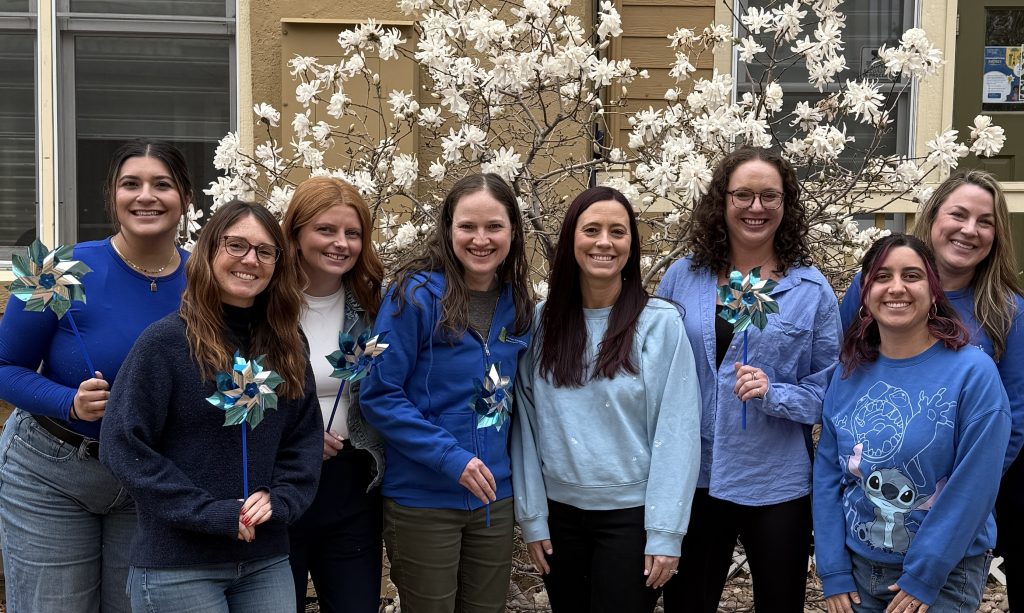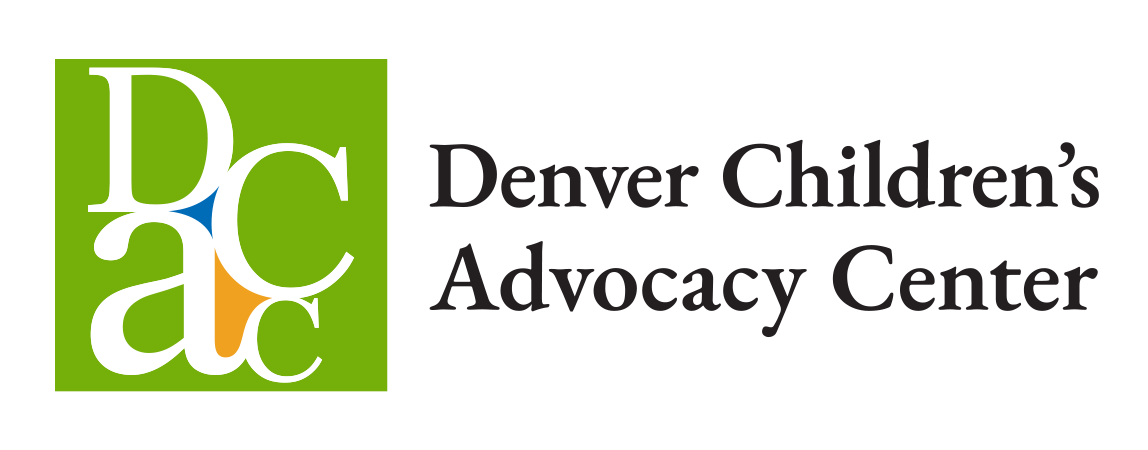Denver Children’s Advocacy Center (DCAC) is pleased to share that all full-time members of our therapy team became fully licensed as of this summer. This means that they each hold the highest level clinical licensure possible.
Here are our therapy team members and their respective credentials, which include Licensed Clinical Social Worker (LCSW) and Licensed Marriage and Family Therapist (LMFT):
- Catherine Hay, LMFT, Director of Treatment and Assessment
- Amy Bell, LCSW, Child and Family Therapist
- Samantha Mastaler, LCSW, Child and Family Therapist/ Early Childhood Mental Health Consultant
- Ashley Khan, LCSW, Bilingual Child and Family Therapist
- Yimalisse Nazario, LCSW, Bilingual Child and Family Therapist
- Emma Skok, LCSW, Bilingual Child and Family Therapist
- Ashley Spaulding, LCSW, Child and Family Therapist
“Having all of our clinicians obtain licensure means that every member of our team has a high level of training and experience providing evidenced-based, trauma-responsive, child-centered and compassionate care to all of the families we serve,” said Emily Murphy, LCSW, DCAC Bilingual Child and Family Therapist.
Christa Summers, Director of Community Outreach, who was a member of the treatment team before taking over community outreach, is a Licensed Professional Counselor (LPC).

Licensing Requirements – Years in the Making
Licensure for mental health therapists varies by the type of professional credential (social work, marriage and family therapy, etc.). However, they all require at least two years of post-graduate work experience that must be conducted under the guidance of a licensed supervisor. Additional requirements include a combination of hours of experience, individual supervision, and an exam.
“One of our values at DCAC is excellence, and I think this is a good example of how we are all doing the most we can to provide the best services to the families we see,” Mastaler said. “Because we are required to continue our education to retain our credentials, we are all always sharing and attending different trainings to ensure we know the current research in the field and are growing our own therapy skills.”
In addition to the new designation, when a therapist is fully licensed, they earn a pay increase at DCAC. Only licensed therapists can serve children with Medicaid, which make up the majority of DCAC clients.
“We are all so passionate about the work we do that we want to feel we are equipped to provide the highest level of services possible,” Mastaler said. “It also creates a level of trust between our team to know that we all share the same ethics and goals.”
Learn more about DCAC’s treatment team’s evidence-based approach and the benefits of the treatment modalities they offer.
